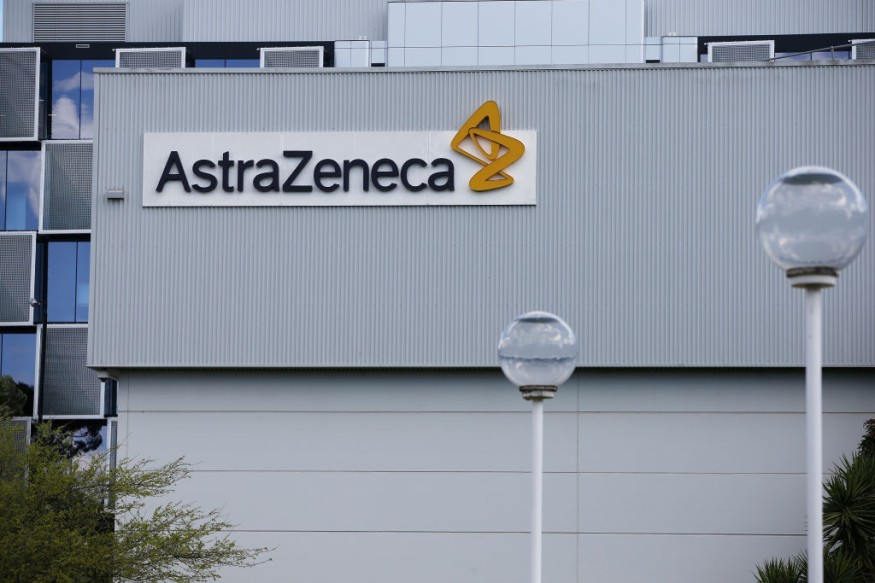A COVID-19 vaccine produced by the University of Oxford and AstraZeneca PLC has been approved in the UK, paving the way for millions of doses to be administered in a time when a more infectious form of coronavirus has led to surging cases.

British health authorities have advised a period of up to three months for all doses of the vaccine, a recommendation that also extends to the shot produced by Pfizer Inc. and BioNTech in the United Kingdom. As the variant drives new cases to databases and hospitalizations, the delay would enable inoculations to hit more individuals more rapidly.
A third approval of a Western-developed vaccine for emergency use this month comes as cases escalate dramatically in Europe and the U.S., which announced its first official new variant case on Wednesday, December 30. The Pfizer-BioNTech shot and one made by Moderna Inc. have been cleared for use in the US.
In 2021, more than any other Covid-19 vaccine manufacturer, and at a lower price, AstraZeneca has agreed to make as much as three billion doses. The company claims that during the pandemic, or even in the case of developing nations, it won't earn something from the release of the vaccine.
With standard refrigeration, the vaccine may also be delivered and preserved for months making it simpler to deliver on places where health-care networks are scarce or underfunded. It does not need ultracold temperatures like the two other Western vaccines.
Recently, the mutant virus prompted several nations to bar tourists and imports from Britain, raising the need for a quick implementation of vaccinations. More than 600,000 doses of the Pfizer-BioNTech vaccine has been distributed as reported by the government.
Scientists also said that, according to an individual familiar with the matter, the three COVID-19 vaccines approved by Western countries so far should be equally successful against the current version or virus mutation.
When Are They Supposed to Deliver the Vaccine?
The pharmaceutical regulator in the U.K. said that vaccination should be provided to people 18 years of age or older. In an interim study of experiments affecting around 11,600 persons in the U.K., the authorization clarifies the usage of two regular vaccine doses, a protocol that was 62 percent successful in preventing symptomatic Covid-19.
They indicated that no priority could necessarily be granted between the two vaccinations approved so far by the U.K. Due to scientific and clinical-trial variations, officials added, the higher effectiveness demonstrated by the Pfizer vaccine is not strictly comparable with that of the Oxford-AstraZeneca injection.
The two-dose protocol is adjustable in regards as to when the second dose can be delivered, ranging from four weeks to 12 weeks following the first dose, health officials said.
It will help extend stocks to postpone the second dose so that more Britons have their first shot faster. But the complete safety of the vaccine, the benefits seen in clinical studies to reduce hospitalization, just kicks in during the second dose.
The revised second dose advice also refers to the Pfizer-BioNTech shot that is already being delivered in the UK. Previously, 21 days after the initial dosage, the second dosage was prescribed. U.K. officials moved it to "within 12 weeks" that Wednesday, referencing the new science advice. The producers of the vaccine have said that maximum safety does not begin until at least seven days after the second dose.
What Makes the Oxford/Astrazeneca COVID-19 Vaccine Different From Others?
The Oxford/AstraZeneca vaccines is licensed for persons over the age of 18 in the United Kingdom and can usually be given as two doses separated four to 12 weeks apart. It costs between $3 and $4 per dose and can be kept in normal fridges. In contrast, the Moderna and Pfizer/BioNTech vaccines, which have been approved for emergency use in the US, cost between $15 and $25 per dose and need freezers. In fact, the Pfizer/BioNTech vaccine requires supercooling storage at below minus 70 degrees Celsius (minus 94 degrees Fahrenheit).
A different technology from the Covid-19 immunizations licensed so far is also used for the Oxford/AstraZeneca vaccine. A molecule named mRNA is used by the Pfizer/BioNTech and Moderna vaccines as their tool to deliver guidance for rendering a member of the SARS-CoV-2 virus. A particular groundbreaking approach was used by Oxford and AstraZeneca, reconfiguring another virus to relay DNA guide to making sections of the SARS-CoV-2 virus. The Oxford/AstraZeneca vaccine manages to stay safe and at elevated temperatures by utilizing another virus to package and distribute genetic content.
In their clinical trials, though, Oxford and AstraZeneca faced several difficulties. They had a dosage discrepancy that culminated in one participant getting less than a maximum dose for their initial injection. So far, its effectiveness tends to be smaller than that of the vaccines Moderna and Pfizer/BioNTech, while the Food and Drug Administration and the European Medicines Agency have set vaccine clearance far beyond the 50 percent mark.
The exact effectiveness benefit, however, remains uncertain, varying from 70 percent to 90 percent efficacy in Covid-19 prevention. And Oxford and AstraZeneca were cagey on the aspects of their tests.
Check out more news and information on COVID-19 on Science Times.












